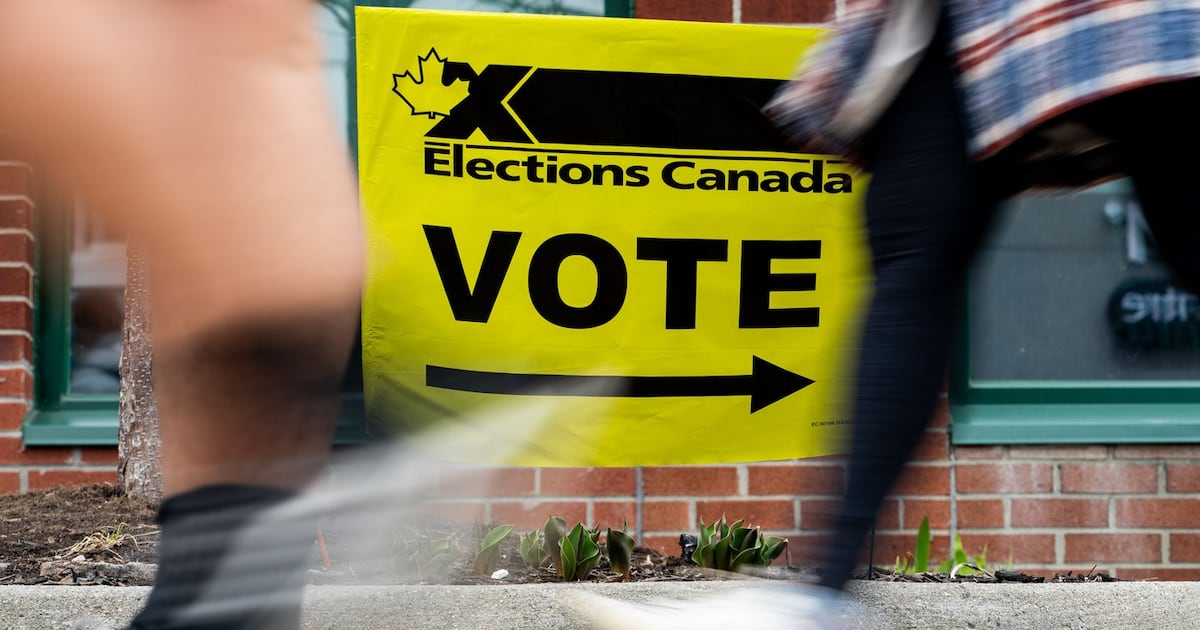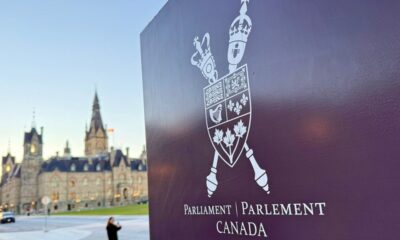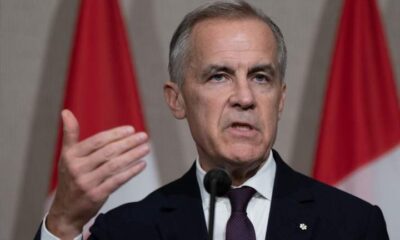Politics
Canadians Embrace Early Voting as April Election Costs Decline

Canadians experienced a shift in electoral behavior during the April 28, 2023 federal election, which saw a decrease in costs compared to the previous election and an increase in early voting participation. According to a report from Elections Canada, the election cost approximately $570 million, slightly less than the $574.2 million spent during the 2021 election.
Currently, the Liberal Party, led by Mark Carney, holds 169 seats in Parliament, while the Conservative Party has 144 seats. The Bloc Quebecois follows with 22 seats, the New Democratic Party (NDP) has seven seats, and the Green Party holds one seat. These numbers may change pending a hearing in the Quebec Superior Court, scheduled for October 20, 2023, regarding a contested election result in the riding of Terrebonne.
The most notable trend from the recent election was the increase in early voting. A total of 19.8 million Canadians cast their ballots, representing 69% of registered voters. Among these, a record 44% utilized advanced voting options, whether through polls or mail-in ballots. Stephane Perrault, Canada’s Chief Electoral Officer, emphasized that this growing preference for early voting necessitates adjustments within Elections Canada.
“The overall pressure to deliver a wider range of services in a shorter period of time increases the risk of errors, so we have to look at the controls,” Perrault stated. He suggested that extending the minimum election period by a few days could help alleviate some of the challenges associated with this trend.
Despite the increased participation in early voting, issues arose that led to contested results in some ridings, notably Terrebonne. The Liberal candidate, Tatiana Auguste, was initially declared the winner by a margin of just one vote following two recounts. However, the Bloc Quebecois has challenged this result, citing a misprint on the postal code of mail-in ballots as a potential reason for their candidate’s loss.
In addition to changes in voting behavior, Elections Canada reported 44 security incidents during the election, with 29 requiring police involvement. The report detailed three incidents involving physical assaults and another three linked to criminal activity. Furthermore, 23 incidents were categorized as “disruptive or threatening behaviors,” primarily related to voter identification and tampering concerns. Despite these incidents, Perrault assured that no events significantly impacted the election’s outcome.
“The last election was secure, and there was no security or cybersecurity incident that affected its administration,” he affirmed, noting that the number of security incidents reported this year was less than half of those during the 2021 election.
As Elections Canada prepares for future elections, it faces the challenge of adapting to the evolving preferences of voters. The recent election not only highlighted the cost efficiency of the process but also underscored the importance of addressing the changing landscape of voter engagement in Canada.
-

 World4 months ago
World4 months agoScientists Unearth Ancient Antarctic Ice to Unlock Climate Secrets
-

 Entertainment4 months ago
Entertainment4 months agoTrump and McCormick to Announce $70 Billion Energy Investments
-

 Lifestyle4 months ago
Lifestyle4 months agoTransLink Launches Food Truck Program to Boost Revenue in Vancouver
-

 Science4 months ago
Science4 months agoFour Astronauts Return to Earth After International Space Station Mission
-

 Technology2 months ago
Technology2 months agoApple Notes Enhances Functionality with Markdown Support in macOS 26
-

 Top Stories3 weeks ago
Top Stories3 weeks agoUrgent Update: Fatal Crash on Highway 99 Claims Life of Pitt Meadows Man
-

 Sports4 months ago
Sports4 months agoSearch Underway for Missing Hunter Amid Hokkaido Bear Emergency
-

 Politics3 months ago
Politics3 months agoUkrainian Tennis Star Elina Svitolina Faces Death Threats Online
-

 Politics4 months ago
Politics4 months agoCarney Engages First Nations Leaders at Development Law Summit
-

 Technology4 months ago
Technology4 months agoFrosthaven Launches Early Access on July 31, 2025
-

 Top Stories2 weeks ago
Top Stories2 weeks agoFamily Remembers Beverley Rowbotham 25 Years After Murder
-

 Top Stories4 days ago
Top Stories4 days agoBlake Snell’s Frustration Ignites Toronto Blue Jays Fan Fury





















